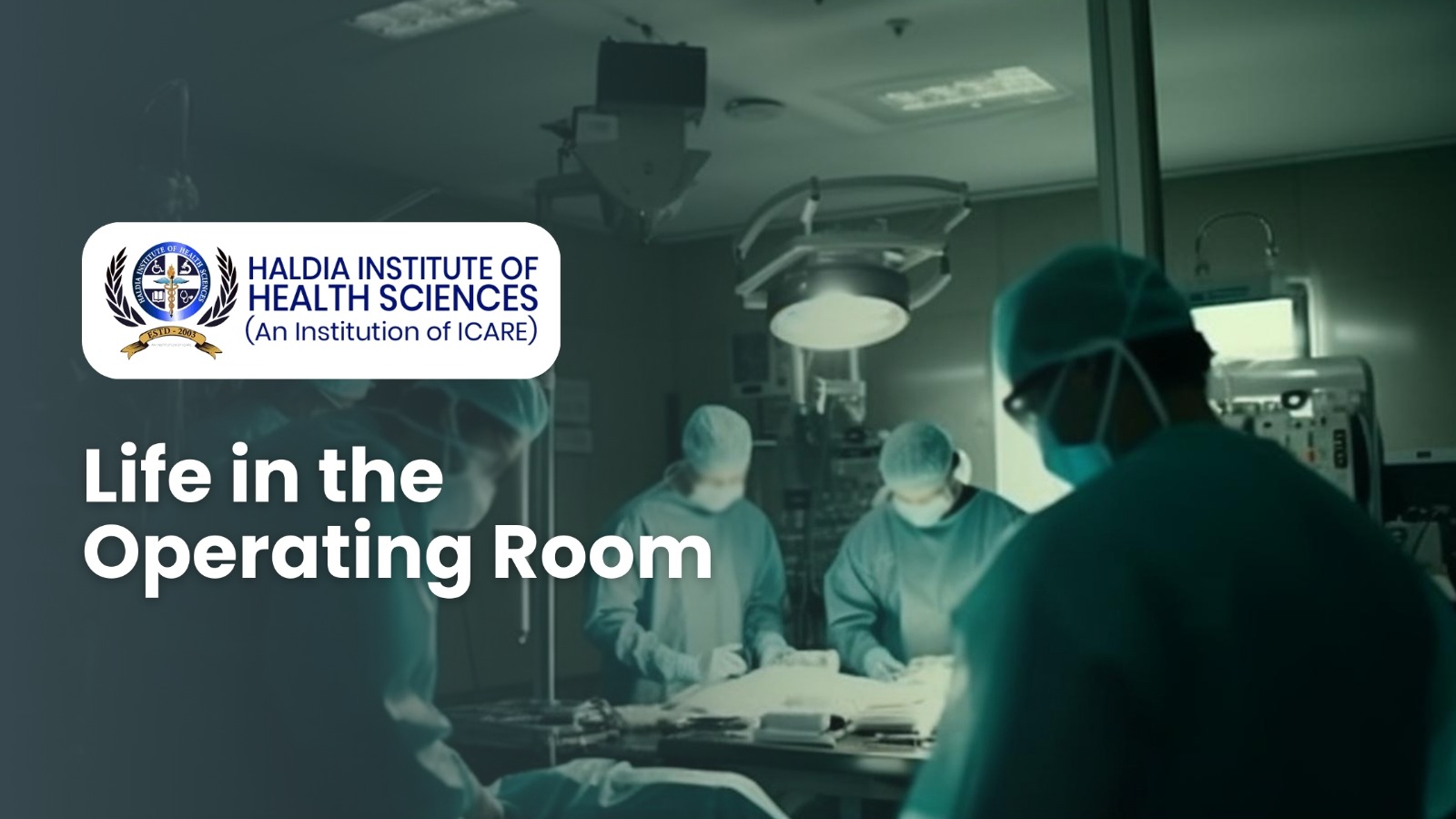Latest Notifications

Blog

Life in the Operating Room: A Glimpse into the World of Surgery
The sterile environment, the hushed whispers of the medical team, the rhythmic beep of monitors – the operating room (OR) is a world unlike any other. It's a space where life and death intertwine, where precision meets compassion, and where the future of a patient hangs in the balance. For students of Operation Theatre Technology (OTT), stepping into this world is not just an academic exercise, it's a baptism by fire, a transformative journey that shapes them into skilled and dedicated healthcare professionals.
Haldia Institute of Health Sciences (HIHS), recognized as the Top Paramedical College in West Bengal, offers a comprehensive OTT program that goes beyond textbooks and lectures. Here, students get the unique opportunity to immerse themselves in the dynamic reality of the OR, gaining invaluable practical training under the guidance of experienced surgeons and nurses.
From Sterile Drapes to Scalpels:
A day in the life of an OTT student at HIHS is a whirlwind of activity. They don their scrubs, step into the sterile confines of the OR, and become an integral part of the surgical team. Their tasks are as diverse as they are crucial:
Preparing the OR: Setting up the operating table, instruments, and sterile drapes, ensuring a safe and efficient environment for surgery.
Assisting the surgeon: Anticipating needs, handing over instruments, and providing support throughout the procedure.
Maintaining sterile field: Adhering to strict infection control protocols to protect both patients and the surgical team.
Managing equipment: Operating specialized medical equipment, including anesthesia machines and surgical lights.
Documenting procedures: Maintaining accurate records of the surgery, vital for patient care and future reference.
Beyond the Technical:
The practical training at HIHS goes beyond mastering technical skills. Students also develop critical soft skills:
Communication: Working effectively with surgeons, nurses, and other healthcare professionals in a high-pressure environment.
Teamwork: Collaborating seamlessly with the surgical team to ensure the smooth flow of the procedure.
Critical thinking: Anticipating potential problems and adapting to changing circumstances in the OR.
Emotional resilience: Witnessing the emotional toll of surgery and developing empathy for patients and their families.

